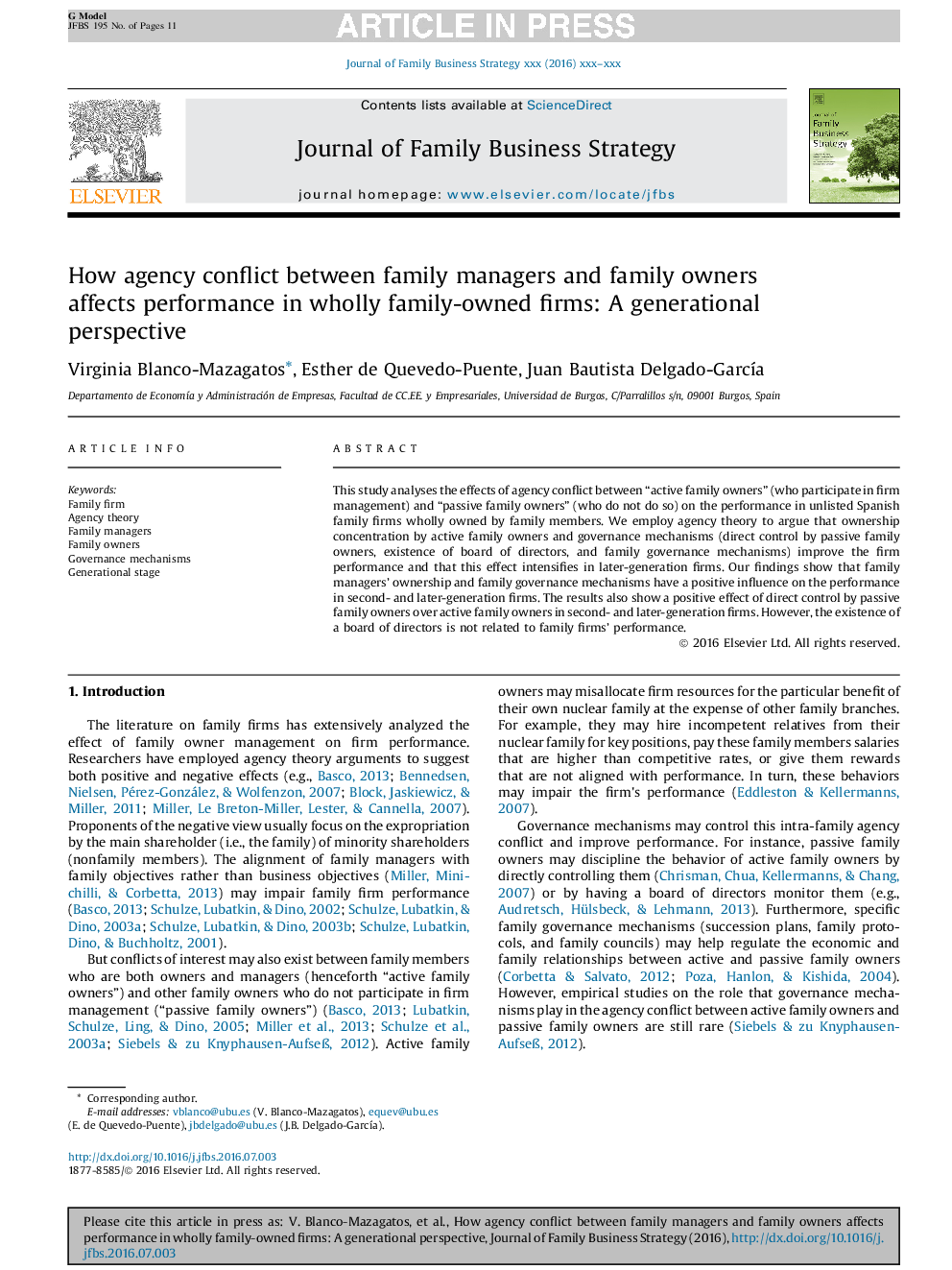| Article ID | Journal | Published Year | Pages | File Type |
|---|---|---|---|---|
| 5110096 | Journal of Family Business Strategy | 2016 | 11 Pages |
Abstract
This study analyses the effects of agency conflict between “active family owners” (who participate in firm management) and “passive family owners” (who do not do so) on the performance in unlisted Spanish family firms wholly owned by family members. We employ agency theory to argue that ownership concentration by active family owners and governance mechanisms (direct control by passive family owners, existence of board of directors, and family governance mechanisms) improve the firm performance and that this effect intensifies in later-generation firms. Our findings show that family managers' ownership and family governance mechanisms have a positive influence on the performance in second- and later-generation firms. The results also show a positive effect of direct control by passive family owners over active family owners in second- and later-generation firms. However, the existence of a board of directors is not related to family firms' performance.
Related Topics
Social Sciences and Humanities
Business, Management and Accounting
Business and International Management
Authors
Virginia Blanco-Mazagatos, Esther de Quevedo-Puente, Juan Bautista Delgado-GarcÃa,
